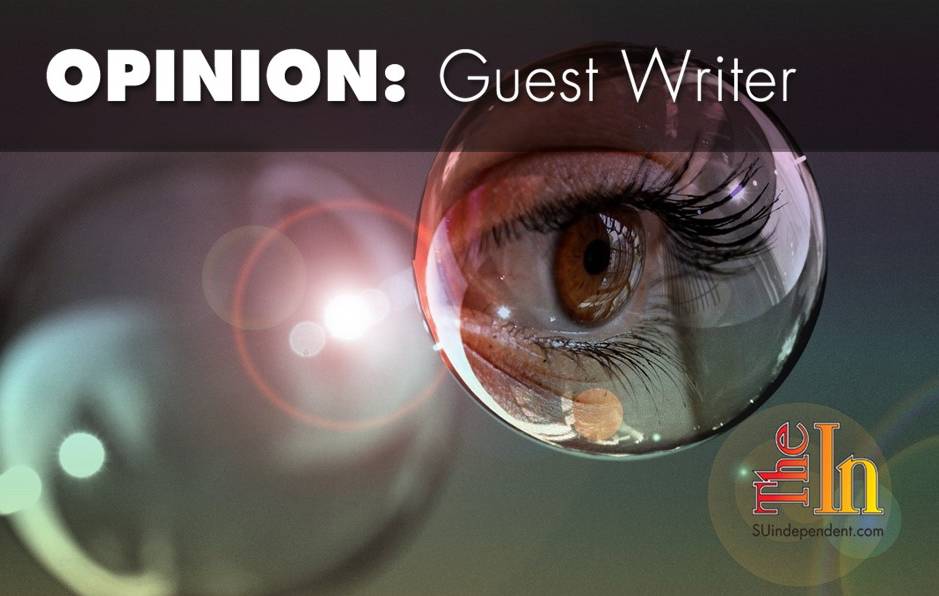 Ask anyone what they “saw” while witnessing an event of some kind. They are happy to tell you “exactly what happened.” They believe it because they saw it, and this defines empirical data or information. But there are some consistent barriers to accurate perception and subsequent reporting.
Ask anyone what they “saw” while witnessing an event of some kind. They are happy to tell you “exactly what happened.” They believe it because they saw it, and this defines empirical data or information. But there are some consistent barriers to accurate perception and subsequent reporting.
One of these is called “selective perception.” We all tend to see what we want to see in any given event or person. Given the complexity of details in any event, we select out of that complexity those things that fit our sensitivities, habits, likes, dislikes, prejudices, and a variety of other variables. We do this, in part, because there is so much information to attend to. For example, if a politician says something outrageous, something that does not ring true, we first make a decision to attend to that comment or not. If we like the person, we apply a positive evaluation of it and agree with those points that align with our own disposition. Disliking the person causes us to apply a negative evaluation. The application mirrors how we feel about the politician; i.e., if we dislike the individual, then we look only for those things that support our negative view of him or her and ignore or discount anything positive. This leads to some other self-imposed tricks being played on our perceptual processes.
 Let’s say we have a negative perception of that politician. We have identified and selected various things that support our negative view. We then embark on a journey of perceptual accentuation. This is where we unrealistically magnify the importance of those negative things and discount or minimize the positive. In all of this we are struggling, unconsciously, with perceptual bias. This in turn leads to an additional process that affects our thinking, our appraisal of the person or event, and our subsequent behavior.
Let’s say we have a negative perception of that politician. We have identified and selected various things that support our negative view. We then embark on a journey of perceptual accentuation. This is where we unrealistically magnify the importance of those negative things and discount or minimize the positive. In all of this we are struggling, unconsciously, with perceptual bias. This in turn leads to an additional process that affects our thinking, our appraisal of the person or event, and our subsequent behavior.
To elaborate, we have selected negative items because we don’t like the event or person, we have unrealistically magnified their importance, we are floundering in a quagmire of resulting bias, and now we fall prey to a self-fulfilling prophecy. This works out as follows: We are biased as a result of faulty perception and now we treat the event or person as though the negatives we’ve identified are the sum total of the person or event, who or which don’t treat any other way. Our treatment of them defines and launches the prophecy. As a result, they begin to behave in the prophesied ways, and that confirms our original perception of them. We proudly proclaim, “See! I was right!”
Thus, we see what we want to see; we treat people inaccurately and unfairly. This happens all the time, and when people perceive us, the same processes are directed towards us.
 One solution you can employ is to look for a balance of both negative and positive elements in the person or event under scrutiny. Doing so forces you to engage in critical thinking, to seek additional information, and to gain far more knowledge. We are all ignorant about a wide range of things. Ignorance is defined as simply not knowing something, and it is very vulnerable to information as long as you maintain an open mind and reserve decisions about people and events until you are more completely informed.
One solution you can employ is to look for a balance of both negative and positive elements in the person or event under scrutiny. Doing so forces you to engage in critical thinking, to seek additional information, and to gain far more knowledge. We are all ignorant about a wide range of things. Ignorance is defined as simply not knowing something, and it is very vulnerable to information as long as you maintain an open mind and reserve decisions about people and events until you are more completely informed.
I recommend doing this process as you are engulfed with political messages over the next two months. Remember that what you see or experience initially is not the entirety of the available information. The initial perception is influenced by those around you, past experience with the source, authority figures, and your own intuition. Try to restrict your immediate reaction to an event or person, open your mind, seek alternative points of view, and then make a decision about what to do. It’s difficult to accomplish but very possible.
In my next article, I will briefly tackle two political candidates on the basis of the processes outlined above.
Articles related to “Seeing is believing, but is it accurate?”
The laws of man vs. the laws of God: Can you think beyond your religion?



